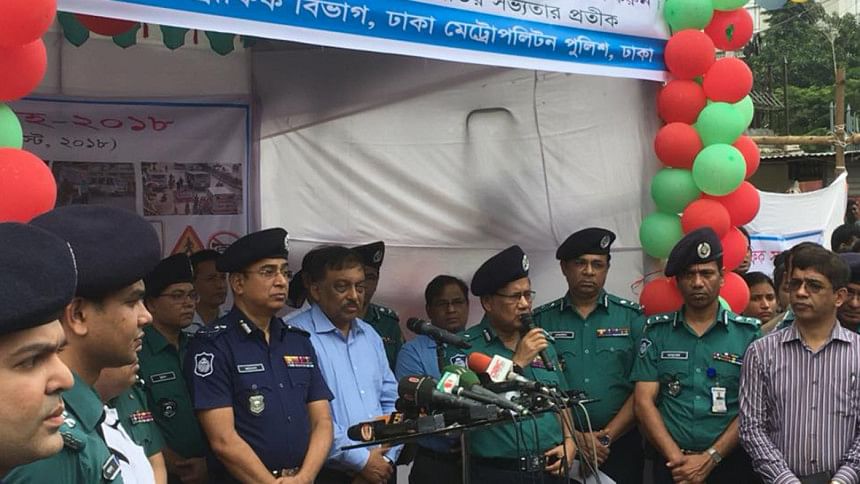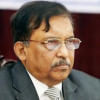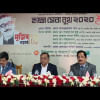Traffic Week: 6,476 cases filed against offenders

Mainly cars and motorcycles came under police scrutiny on the first day of “Traffic Week” yesterday, amid an unannounced transport strike.
After days of widespread protests demanding safe roads, Dhaka Metropolitan Police Commissioner Asaduzzaman Mia on Saturday announced the week-long programme to be observed across the country.
In the day-long drive, a total of 6,476 cases were filed against traffic offenders by police across the country. Of them, 3,651 cases were lodged by the DMP.
During “Traffic Week”, police take legal steps against unfit vehicles, drivers without licence and other traffic offenders, including pedestrians.
Inaugurating the “Traffic Week” in the capital's Zero Point, Home Minister Asaduzzaman Khan urged the protesting students to return to their classes as “their demands have been met”.
There was barely any public transport on Dhaka's streets yesterday. No long haul buses left or entered the capital.
Many buses and human hauliers that ply the streets of Dhaka do not have licence or registration, earlier crackdowns on traffic offenders had found.
As students checked licence or registration of motorists in the last few days, they have found a number of high government officials with no proper documents.
Besides traffic police, boy scouts and girl guides were seen requesting the pedestrians to use footpaths yesterday.
The Daily Star correspondents found police using loudspeakers at Motijheel, Gulistan and Jatrabari, asking people to maintain lanes and not to park illegally.
Around 10,000 policemen have been deployed in the capital to assist the traffic police, said a police officer wishing anonymity.

 For all latest news, follow The Daily Star's Google News channel.
For all latest news, follow The Daily Star's Google News channel. 







Comments